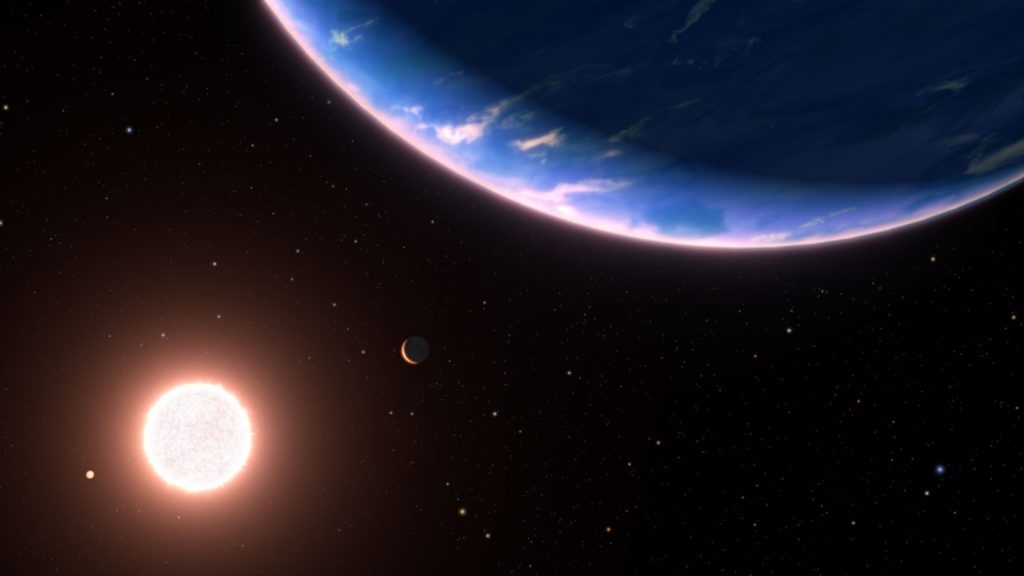A planet discovered in 2017 called GJ 9827d, located about 100 light-years away from Earth, has an atmosphere composed almost entirely of hot water molecules. This planet, classified as a sub-Neptune due to being about twice the size and three times the mass of Earth, is teeming with water vapor, leading astronomers to dub it a “steam world.” Although sub-Neptunes are common in the galaxy, they do not exist within our own solar system.
To better understand the composition of GJ 9827d, astronomers used the James Webb Space Telescope to observe two transits of the planet in November 2023. Previous observations using the Hubble space telescope had hinted at water molecules in the planet’s atmosphere. However, combining data from both telescopes confirmed that the planet’s atmosphere is primarily made up of water vapor, given its scorching temperature of about 340 degrees Celsius.
With the planet likely lacking a solid surface beneath its steamy skies, the high pressure from all the water vapor could lead to the formation of unusual forms of matter, such as supercritical fluids or hot high-pressure ices. Despite not being an ideal candidate for supporting life due to these extreme conditions, GJ 9827d provides a valuable opportunity to study atmospheric compositions that differ from those found in habitable planets.
This discovery of a “steam world” like GJ 9827d offers the first observational evidence supporting the existence of such planets, which were previously only predicted theoretically. Astronomer Ryan MacDonald, involved in the research, notes that this finding is a significant step toward understanding the diversity of exoplanets and enhancing astrobiological research.
Studying the atmosphere of planets like GJ 9827d not only expands our understanding of the universe but also serves as a practice ground for observing potentially habitable exoplanets in the future. MacDonald emphasizes that detecting heavier atmospheres on planets is essential for progressing towards the ultimate goal of finding planets capable of sustaining life.
In summary, the discovery of the steam world GJ 9827d sheds light on the diversity of exoplanetary atmospheres and provides valuable insights for future astrobiological research. By expanding our knowledge of unique planetary compositions and atmospheric conditions, astronomers are moving closer to identifying potentially habitable exoplanets and understanding the complexities of life beyond Earth.


